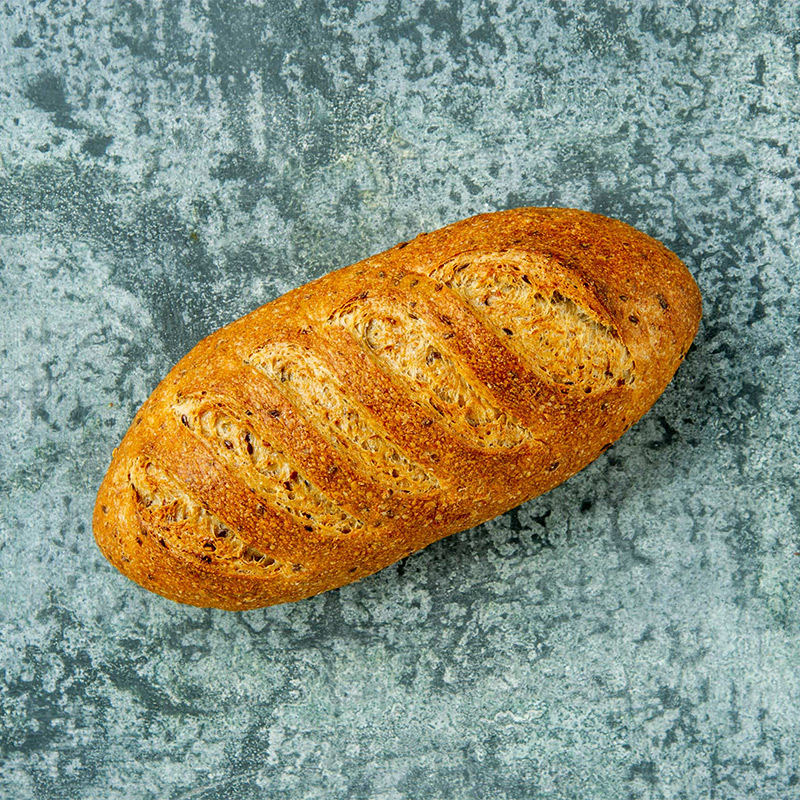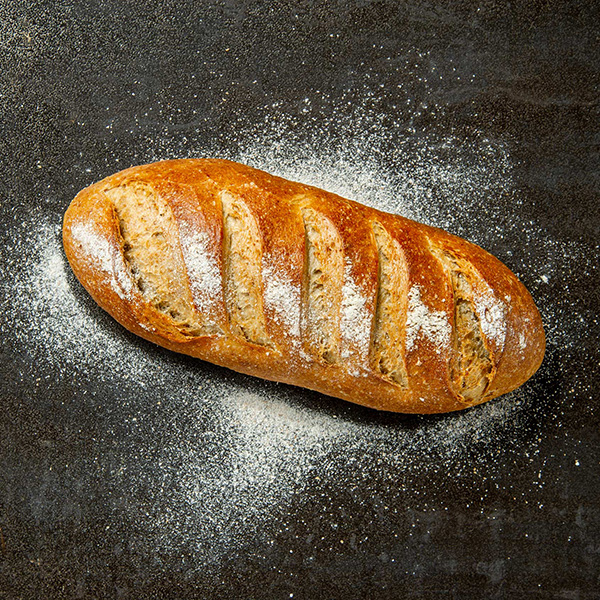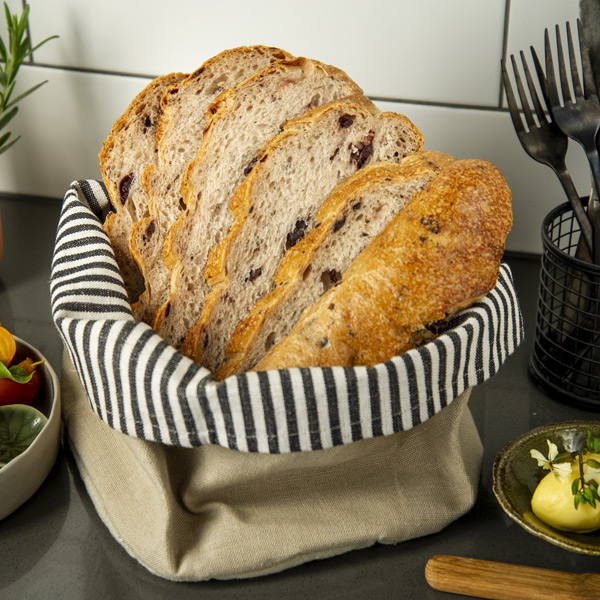Luscious Living Bread
Handmade Sourdough baked daily from slow fermented starter to produce naturally healthy, nutritious bread in a range of mouth-watering flavours.

What makes sourdough bread unique?
Introduced by the Egyptians around 3000 BC, traditional sourdough is made using a living starter we call ‘Mother Dough’. This enriches and enlivens the new dough, allowing the grain to ferment naturally over time. Sourdough relies on ‘wild yeast’ and probiotics in the form of lactobacillus culture naturally present in flour to leaven the bread and make it rise. The pre-ferment takes 8 hours. The dough is then refrigerated for a further 24 hours until it is workable. At Artisan, 48 hours of fermentation improves the texture, and nutritional value of the bread. When baked, it becomes the most delicious, nutritious, natural bread you’ve ever tasted.
Slow, natural fermentation unlocks the goodness
Only when wheat gluten is properly fermented is it healthy for human consumption. When it’s not, it is potentially one of the most highly allergenic foods we can eat. Fast-made commercial bread takes 40 minutes from start to finish. Artificial preservatives, proving accelerants and synthetic yeast make factory bread one of the most destructive inclusions in our modern diet. Poorly-prepared and poorly-digested wheat is the chief contributor to the current plague of gluten-intolerance, obesity, diabetes, Candida diseases and many other allergenic conditions.
Sourdough May Be Better for Blood Sugar Control
Researchers believe that sourdough fermentation may modify the structure of carb molecules. This reduces the bread's glycemic index (GI) and slows down the speed at which sugars enter the bloodstream. The GI is a measure of how a food affects blood sugar. Foods with a lower GI are less likely to produce a spike in blood sugar levels.
Sourdough improves your ability to absorb minerals
For starters, whole grain breads contain minerals, including potassium, iron, phosphate, magnesium, selenium and zinc. Correctly fermented wheat also unlocks 18 amino acids (proteins), complex carbohydrates (a super efficient source of energy) and B vitamins. Naturally fermented Sourdough reduces phyate levels, dramatically improving your body’s ability to absorb these minerals 24-50% better than commercial baker’s yeast.
Antioxidants and Folate
Studies show that the lactic acid bacteria present in sourdough bread has the ability to release antioxidants during fermentation. This also increases Folate levels in the bread.
Sourdough is
easier to digest
Sourdough bread is often easier to digest than bread that's fermented with artificial baker’s yeast. Researchers believe this could partly be due to sourdough bread's prebiotic content and probiotic-like properties. Prebiotics are non-digestible fibers that feed the beneficial bacteria in your gut, while probiotics are beneficial bacteria found in certain foods and supplements. Regularly consuming both may help improve your gut health, easing digestion.


2/22 Payneham Road, Stepney, SA 5069
0417 836 109


